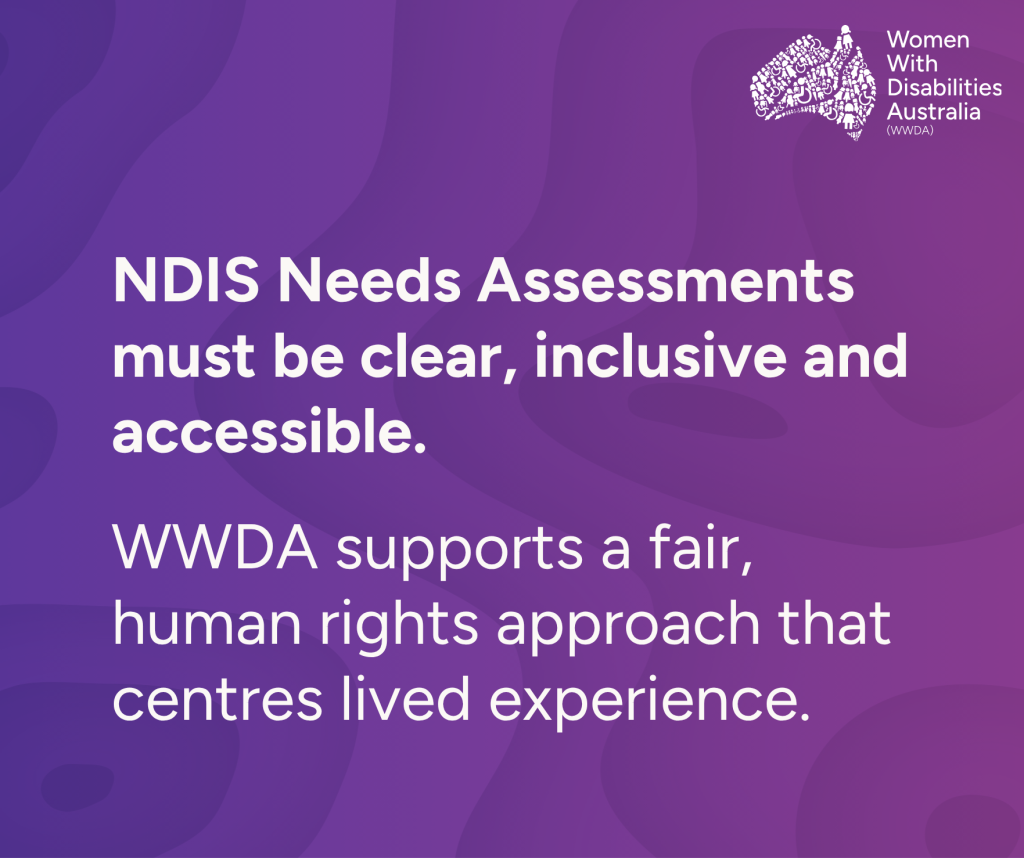The Government has announced changes to how the NDIS will work out people’s support needs starting from mid-2026.
We know many in our community feel worried, confused, or exhausted by change. That reaction is fair. For years, people have told us the current set-up is costly, stressful, unclear and often re-traumatising. Many spend thousands on reports just to keep the basic supports they need to survive.
Where we stand
We have consistently argued for a fair, human-rights approach to needs assessment that centres our lived experience. Our advocacy has focused on:
- Gender-responsive design from the start: Assessments must recognise the specific experiences of women, girls and gender-diverse people with disability, including safety and freedom from violence, periods and continence needs, reproductive health, caring and parenting roles, household work, and the impacts of chronic and complex conditions that disproportionally affect our community.
- Lived experience counts as evidence: People should be able to add context in their own words, involve trusted supporters, and have a chance to review and correct drafts before anything is final.
- Whole-of-person view: Assessments must look at everyday life and environment, not just diagnosis, including geography, culture, community, life transitions and fluctuating and episodic disability.
- Trauma-informed and culturally safe practice: No re-traumatisation. Choice about how and where assessments happen, assessors with the right skills and training, and safe options for people who have experienced violence.
- Clear links to budgets: People deserve simple explanations of how assessment results translate to funding decisions.
- Fewer costly reports and less paperwork: The process should reduce unnecessary reporting and let more of a person’s budget go to the actual supports they need.
- Transparency and accountability: Public reporting on what’s being tested, what’s changing and why; and a straightforward, accessible appeals pathway.
What we will keep pushing for
As this new process develops, we will continue to call for needs-assessments that:
- are built with the disability community, not for us,
- centre human rights and gender equality at every step,
- give people real voice and control, before, during and after an assessment,
- avoid hidden or “black-box” decision-making and explain outcomes in plain English,
- protect safety and privacy, with clear consent and data use, and
- are tested carefully, published openly, and fixed before wider rollout.
Our promise to you
Any new needs assessment process must protect and reflect your needs.
We will keep calling for clear, accessible information and meaningful ways for the community to shape what is built.
We’re here for you. We will stand up for the rights and voices of women, girls and gender diverse people with disability.

